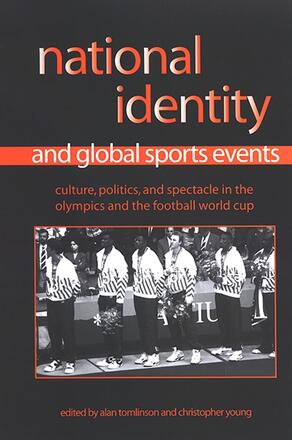
National Identity and Global Sports Events
Culture, Politics, and Spectacle in the Olympics and the Football World Cup
Alternative formats available from:
Explains why cities dig deep in their pockets to host the Olympics and countries breed teams for success on the world soccer stage.
Description
National Identity and Global Sports Events looks at the significance of international sporting events and why they generate enormous audiences worldwide. Focusing on the Olympic Games and the men's football (soccer) World Cup, the contributors examine the political, cultural, economic, and ideological influences that frame these events. Selected case studies include the 1936 Nazi Olympics in Berlin, the 1934 World Cup Finals in Italy, the unique case of the 1972 Munich Games, the transformative 1984 Games in Los Angeles, and the 2002 Asian World Cup Finals, among others. The case studies show how the Olympics and the World Cup Finals provide a basis for the articulation of entrenched and dominant political ideologies, encourage persisting senses of national identity, and act as barometers for the changing ideological climate of the modern and increasingly globalized contemporary world. Through rigorous scholarly analyses, the book's contributors help to illuminate the increasing significance of large-scale sporting events on the international stage.
Alan Tomlinson is Professor of Leisure Studies, Area Leader for Sport and Leisure Cultures, and Head of Chelsea School Research Centre at the University of Brighton. He is the author and editor of many books, including The Game's Up: Essays in the Cultural Analysis of Sport, Leisure, and Popular Culture. Christopher Young is University Lecturer at the University of Cambridge and Fellow and Director of Studies in Modern and Medieval Languages at Pembroke College. He is the coauthor (with Thomas Gloning) of A History of the German Language Through Texts.